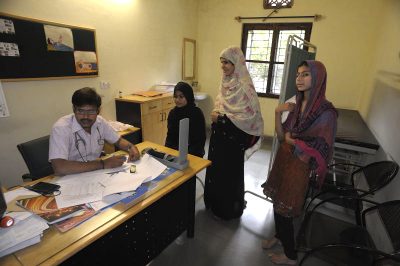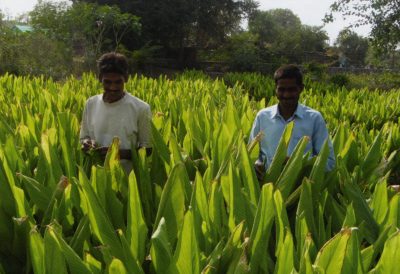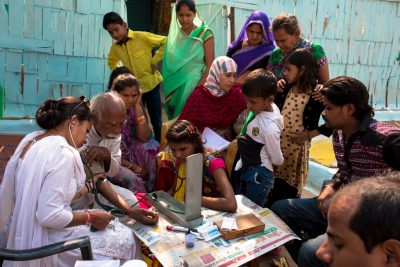
Ayurvedic doctors at the Sambhavna Clinic have successfully applied for grant funding from the Indian Council of Medical Research (ICMR). The grant money, which is expected shortly, will be funding research focused on: “Ayurvedic Virechana therapy as a means to detoxify persons in Bhopal with history of chronic exposure to chemicals and heavy metals and documentation of consequent changes in their health status.”
Based on other published reports and Ayurvedic literature, along with the prior experience of work carried out at the clinic, this research proposes to test the efficacy of Ayurvedic Virechana therapy in the detoxification of persons known to have been chronically exposed to significantly high concentrations of organochorines, pesticides and heavy metals.
The results of the proposed research will have a significant impact in improving the health care of over 50 thousand persons living in the communities next to the abandoned Union Carbide pesticide factory in Bhopal, who have used the local ground water for drinking, cooking and washing over the last 20 years.
The investigators of the proposed project have examined and provided treatment to over 5687 residents of these communities at the Sambhavna Trust Clinic. During the course of their work, the investigators have recorded marked improvement in the health status of persons who were prescribed Panchakarma therapy. The proposed research will significantly contribute to the knowledge on the effective treatment of diseases caused by chemical pollution elsewhere in the country and around the world.

Other Research Ongoing at Sambhavna
Turmeric is an extremely important ingredient in many ayurvedic medicines thanks to a wide range of healing properties. The Sambhavna clinic is undertaking its own research to improve the quality and quantity of turmeric (curcuma longa) yield using plant growth promoting bacteria (PGPB).
Two PGPB strains (Pseudomonas and Bacillus) have been reported as plant growth promoting bacteria and potential bio-control agents against a wide range of bacterial and fungal pathogens (Cuppels et al, 1999; Kotan et al, 1999; Cakmakci et al, 2001; Esitken et al, 2002, 2003).
Objective
The plant growth promoting effects of Bacillus and Pseudomonas bacteria strains are tested alone, or in combinations on turmeric plants in different pots, under organic condition. After seedling, soil is inoculated with bacterial strain. Bacterial population in soil is checked regularly and maintained by pouring the inoculum as desired. Soil is analysed before experiment to determine the potential to increase the quantity and quality of turmeric.
Methodology
This study will be conducted at the Sambhavna Trust clinic, Bhopal during the summer period of 2017. Bacteria is grown on nutrient agar (NA) for routine use, and maintained in nutrient broth (NB). A single colony transfer to 500 ml flasks containing NB, and grown aerobically in flasks for 48 h at 37º C. The bacterial suspension then diluted in sterile distilled water, and resulting suspension used for inoculation in turmeric plants.
Pot experiment
The experiment is carried out in four pots. Pots are filled with soil collected from the Sambhavna Clinic garden. Inoculation of Bacillus and pseudomonas in soil performed after adding seedling turmeric in the pot. Plant organs sprayed with bacterial suspension of Pseudomonas and Bacillus alone and in combination using 3 different pots. In one further pot control plants are sprayed and poured over using sterile water.
Population of bacteria checked in 4-5 day intervals and population in soil maintained by inoculating as required. Plants watered as necessary throughout the experimental duration.
Growth promoting effects of bacterial treatments evaluated by determining cumulative yield (g/plant), average weight (g), number, height and width of plant. (E. Orhan et al. / Scientia Horticulturae 111 (2006) 38–43, Elsevier)

Community research
The community research unit at Sambhavna is near to completion on entering data from around a thousand families on ‘status of health and medical care of gas victims’. Report expected to be available for peer review in August 2017


